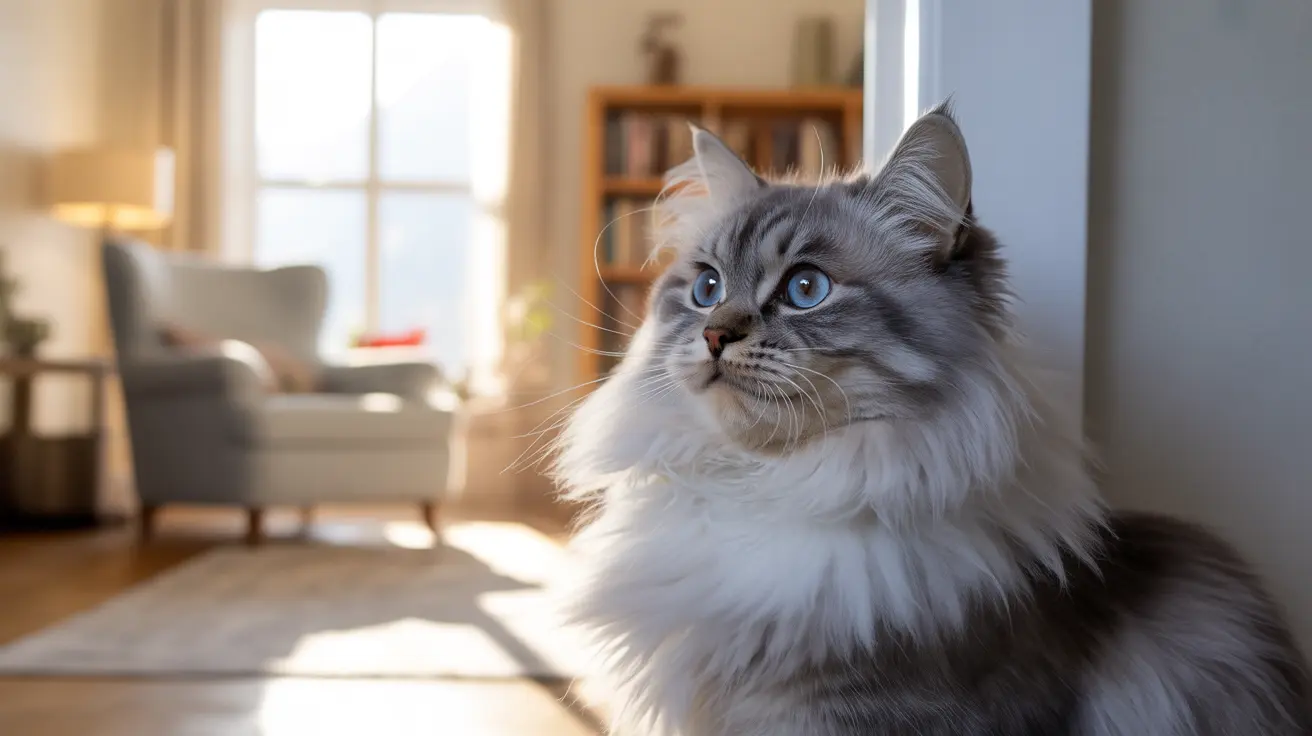Many cat owners have experienced that moment when their feline friend seems to give them the cold shoulder after a trip to the vet or an unpleasant experience. This behavior often leads people to wonder if cats hold grudges like humans do. The answer lies in understanding the fascinating intersection of feline memory, emotional processing, and survival instincts.
While cats may appear to harbor resentment, their reactions to negative experiences are actually rooted in something quite different from human grudges. Let's explore the science behind feline behavior and emotional responses to understand what's really happening when your cat seems to be holding a grudge.
The Science of Feline Memory and Emotions
Unlike humans, cats don't possess the complex emotional and cognitive capabilities required for true grudge-holding. Instead, their behavior is driven by a combination of associative memory and survival instincts. Cats can form strong associations between experiences, people, and places, which help them navigate potential threats and ensure their safety.
Research shows that cats have both short-term and long-term memory capabilities, allowing them to remember significant events and their emotional responses to them. However, these memories serve a practical purpose rather than an emotional one.
How Cats Process Negative Experiences
When cats encounter an unpleasant situation, their brains create a strong associative memory that helps them avoid similar experiences in the future. This response is part of their evolutionary survival mechanism, not a conscious decision to hold a grudge.
For example, if your cat receives medication that causes discomfort, they might temporarily avoid the person who administered it. This isn't because they're angry or holding a grudge – they're simply responding to their instinct to avoid potential sources of stress or discomfort.
The Role of Associative Learning
Cats are masters of associative learning, which means they quickly connect certain actions or people with positive or negative outcomes. This learning mechanism helps them:
- Identify safe vs. dangerous situations
- Remember food sources and hunting grounds
- Recognize friendly vs. threatening individuals
- Avoid potentially harmful experiences
Building Trust and Positive Associations
When your cat appears to be holding a grudge, what they really need is time to build new, positive associations. Here are effective ways to help your cat move past negative experiences:
- Maintain a consistent, gentle approach
- Use treats and positive reinforcement
- Respect their space and boundaries
- Create calm, stress-free environments
- Allow them to approach you on their terms
Understanding Your Cat's Behavioral Changes
Changes in your cat's behavior following a negative experience are normal and typically temporary. These might include:
- Hiding or avoiding certain areas
- Showing hesitation during interactions
- Displaying defensive body language
- Changes in eating or sleeping patterns
These behaviors usually resolve as the cat creates new, positive associations and the memory of the negative experience fades.
Frequently Asked Questions
Do cats hold grudges against their owners after a bad experience?
No, cats don't hold grudges in the human sense. Instead, they form associations based on experiences and may temporarily avoid situations or people they associate with discomfort or stress.
How long do cats remember negative events or people who scared them?
Cats can remember significant events for months or even years, especially if they were traumatic. However, these memories can be modified through positive experiences and careful reconditioning.
Why does my cat ignore me after a trip to the vet or a stressful event?
This behavior is a natural response to stress and isn't personal. Your cat is processing the experience and may need time to feel safe and secure again.
How can I help my cat get over a bad memory or negative association?
Focus on creating positive experiences through gentle interaction, treats, and patience. Allow your cat to set the pace for renewed interaction and never force engagement.
Can cats really feel resentment, or is their behavior just instinct and memory?
Cats' reactions are primarily based on instinct and memory rather than complex emotions like resentment. Their behavior is driven by survival mechanisms and associative learning rather than emotional grudges.
Conclusion
While cats may appear to hold grudges, their behavior is actually a fascinating display of survival instincts and associative memory at work. Understanding this difference helps us better support our feline companions through stressful experiences and maintain strong, positive relationships with them.






